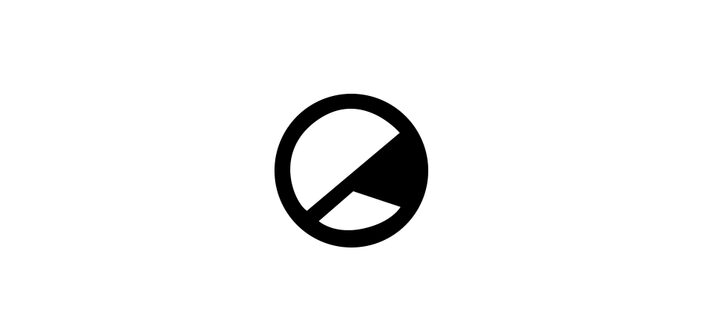The shock, the relief, the triggering – let’s face it, we all have and love engaging in a controversial opinion. Our writers are no exception and have a list of films guaranteed to relieve those that did not get the hype whilst simultaneously angering film bros everywhere.
Blade Runner 2049
Denis Villeneuve is a fascinating director who managed to become a huge success incredibly quickly, and with his adaptation of Dune on the way it makes sense to look back to his biggest film to date, Blade Runner 2049. Unfortunately, Blade Runner 2049 proves why sometimes it’s best to leave a great film alone, as even the incredibly immersive special effects can’t save this one from feeling like a blank imitator of other, better films.
Ryan Gosling doesn’t change at all from Drive. Roger Deakins does his best but seems too focused on making Blade Runner’s world beautiful rather than grim as it should be, and the screenplay’s consistent attempts to align itself with the original film’s nostalgia whilst trying to run in the opposite direction just make it feel hollow. No number of twists and turns can save Blade Runner 2049 from its self-conscious slow pacing. It all ultimately feels as soulless as the replicants inhabiting the Blade Runner world.
Reece Beckett
Casino
1995 was a banner year, perhaps the greatest year, for crime films: Heat, Se7en, The Usual Suspects and, for many, Casino. But despite its positive reputation and representation in esteemed ‘greatest’ lists, Martin Scorsese’s numbing epic is a creative misfire; a sloppy second dish after Goodfellas. If goals equalled an hour of runtime, then Casino would be a hattrick too long. Robert De Niro and Joe Pesci are brought in again to replicate their memorable performances in Goodfellas, but this time as despicable mobsters with a penchant for the vices of Las Vegas. Scorsese’s devotion to voice-over narration is the largest problem here. The film is constantly dropping unneeded, potty-mouthed exposition that prevents Casino from ever feeling like it has properly started, whilst the f-bombs just become tiresome and lazy. Not even a fantastic performance from Sharon Stone and a cracking soundtrack can stop this from feeling like Scorsese did it in his sleep. There’s only one good film with ‘Casino’ in its title, and that’s the one with ‘Royale’.
Jacob Hando
Once Upon a Time in Hollywood
Perhaps I just don’t ‘get it’, but Once Upon a Time in Hollywood is overrated. It is incohesive and disjointed without the exciting, engrossing plot that I would expect from any film, not least one which is two hours and forty minutes long. Immediately upon exiting the cinema, I could not have told you more than three things that happened, barring the last ten (exhilarating) minutes or so. Nevertheless, this isn’t worth the previous two hours of boredom. It is admittedly visually striking: between Spahn Ranch, the meta setting of the ‘Lancer’ set, and the grandeur of the houses in the Hollywood Hills, the film is engaging to look at on a shot by shot basis, but this just isn’t sufficient. The subplots don’t link together enough for me to be invested in them and due to this lack of cohesion, fails to piece together an overall picture. It is difficult because I know Tarantino works in mysterious and artful ways. It may be that this film has surpassed my understanding, but then again – shouldn’t any film have the ‘average’ viewer in mind? Or has Tarantino moved beyond this standard?
Martha Luke
Joker
While I enjoy witnessing Joker slander, I appreciate what works in this film – the visuals are beautiful and of course, Joaquin Phoenix is mesmerising in this film. My qualms lay with the writing. Despite the performance, Arthur as a character is very inconsistent – he claims to be apolitical, but many aspects of the film contradict this desire for random chaos and more than hint at his desire to be a hero in a capitalist world that never appreciated him. It’s frustrating that the only defence available for pretty much any critique of this film is that ‘well, the Joker is crazy, he won’t make sense’. Well, he is mentally ill, but that doesn’t negate his own motivations, which seem clear at the beginning but become murkier in the film’s attempt to criticise everything – social classes, the media and the treatment of the mentally ill to name a few. This lack of a defined message has led to many joining the clown-masked mob and glorifying his actions, to the point that many see fans of this film as a ‘red flag’. I will undoubtedly watch the film again, but I do think much of the hatred comes from a very valid place – if you’re going to make a character study film, you are sort of obligated to study the character.
Lucy Maggs
Pulp Fiction
Considered one of Hollywood’s greatest directors, Quentin Tarantino seems to have struck gold with his ultraviolent, stylishly choreographed, and ‘should I be laughing?’ formula. Yet, when you look at his directorial work, Pulp Fiction is often met with universal praise and considered Tarantino’s best. So why is it considered so great when it’s okay at best? Narratively, Pulp Fiction offers multi-narrative vignettes of characters that lack any development, focusing on violent criminals that get caught in increasingly bizarre – if admittedly humorous – situations. Pulp Fiction‘s most iconic scene (featuring Uma Thurman and John Travolta) throws the rest of the film into the shadows, while its ‘I shot Marvin’ scene is its most memorable moment for simply garnering a laugh. Tarantino, however, often veers too dramatically towards shock factor and doesn’t quite master the multi-narrative puzzle, one that juggles a vast amount of characters and gives them all drive. It’s a very ‘take it as it is’ film, leaving one wondering if it’s more of a violent outlet fronted by characters we rarely feel for rather than a genuine masterpiece.
Sam Pegg




